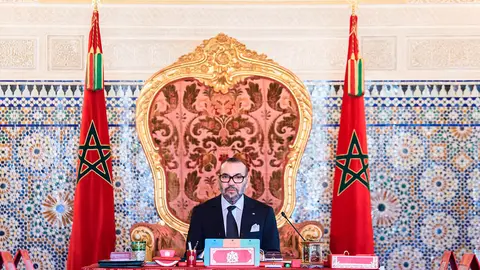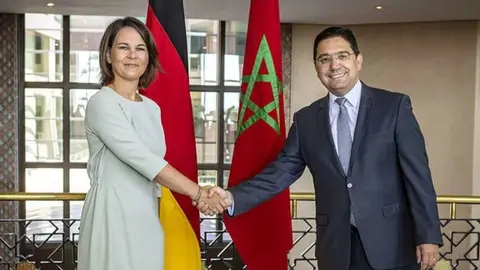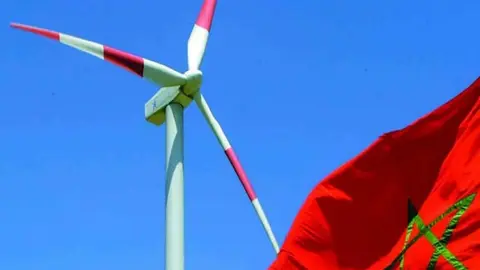Morocco prepares to celebrate the 25th anniversary of Mohammed VI's reign
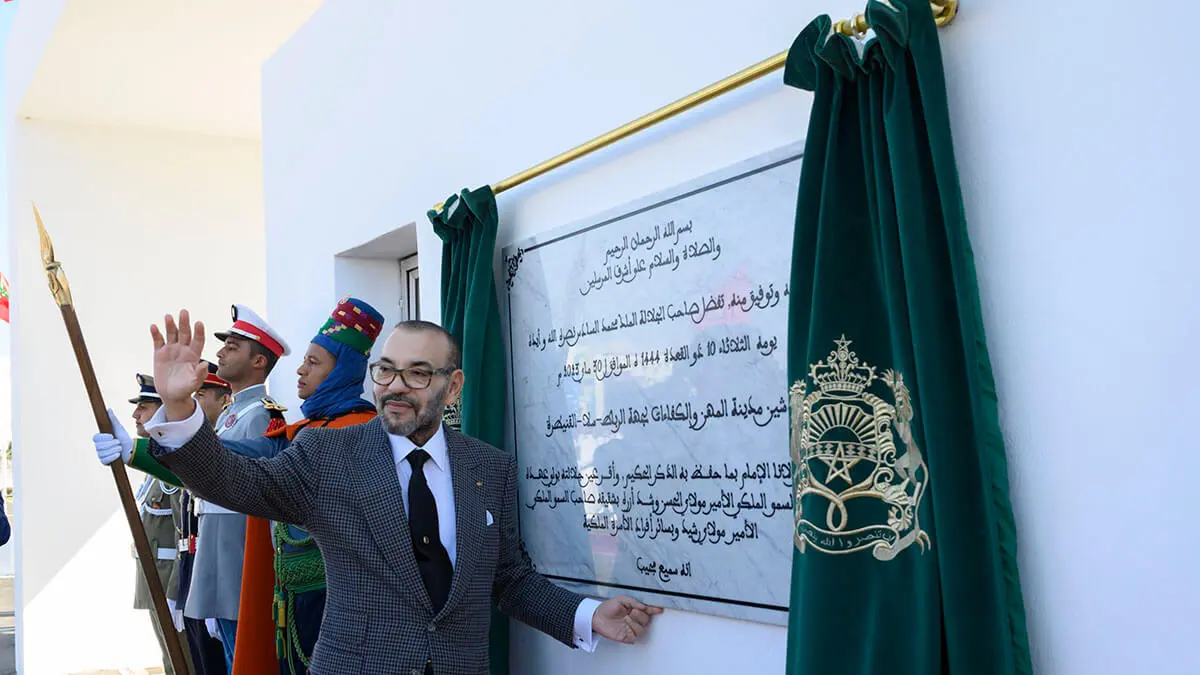
- Industrial growth and infrastructure development
- Foreign policy
- The Kingdom promotes renewable energies
- The fight against drought, the main current challenge
Morocco is preparing to celebrate the 25th anniversary of the enthronement of King Mohammed VI on 30 July 2024. On this day, a reign marked by an unwavering commitment to a just, modern and prosperous Morocco will be remembered and celebrated.
The Morocco of today has nothing to do with the Morocco of 25 years ago. Economic growth, reforms and development projects have been at the heart of recent decades marked by evolution and progress.
The reign of Mohammed VI has seen the promotion of numerous social reforms, such as the National Initiative for Human Development (INDH), the Mohammed V Foundation for Solidarity, the Compensation Fund, the Medical Assistance Scheme (RAMED) and the establishment of direct aid in exceptional periods, particularly during the Covid-19 pandemic. Now, one of the major tasks ahead is to generalise social security coverage.
In his first speech from the throne, King Mohammed VI expressed his determination to ‘continue the work of development’ for the benefit of Moroccans of all social categories, and in particular the most needy ‘to whom we express our affection’.
Currently, 3.81 million families benefit from direct aid, a new system of family benefits launched at the end of 2023. The generalisation of the compulsory basic health insurance system, launched in 2022, currently benefits 23.2 million people.
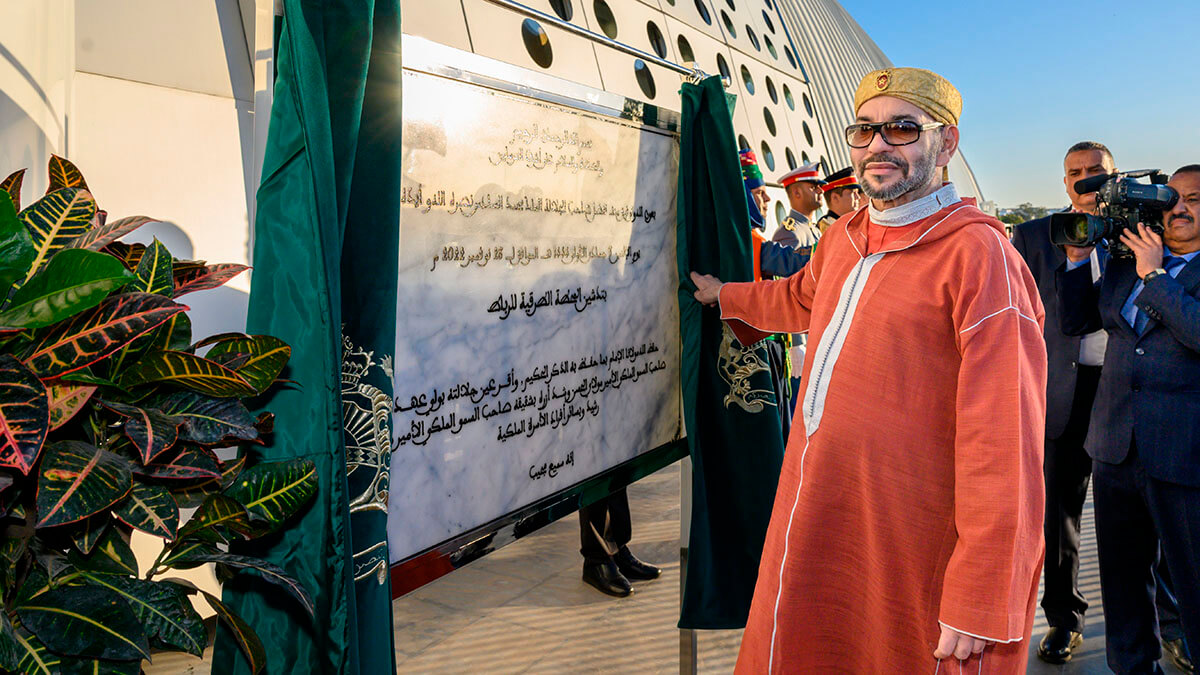
Industrial growth and infrastructure development
In addition to social reforms, Mohammed VI's reign has also been marked by a quantum leap in terms of economic development. The Kingdom has gone from being a largely agricultural country to a regional industrial giant.
Morocco has managed to produce more than 600,000 cars a year, as well as parts used in every aircraft in the world. It has also developed a high-value agri-food sector and a rapidly evolving textile industry.
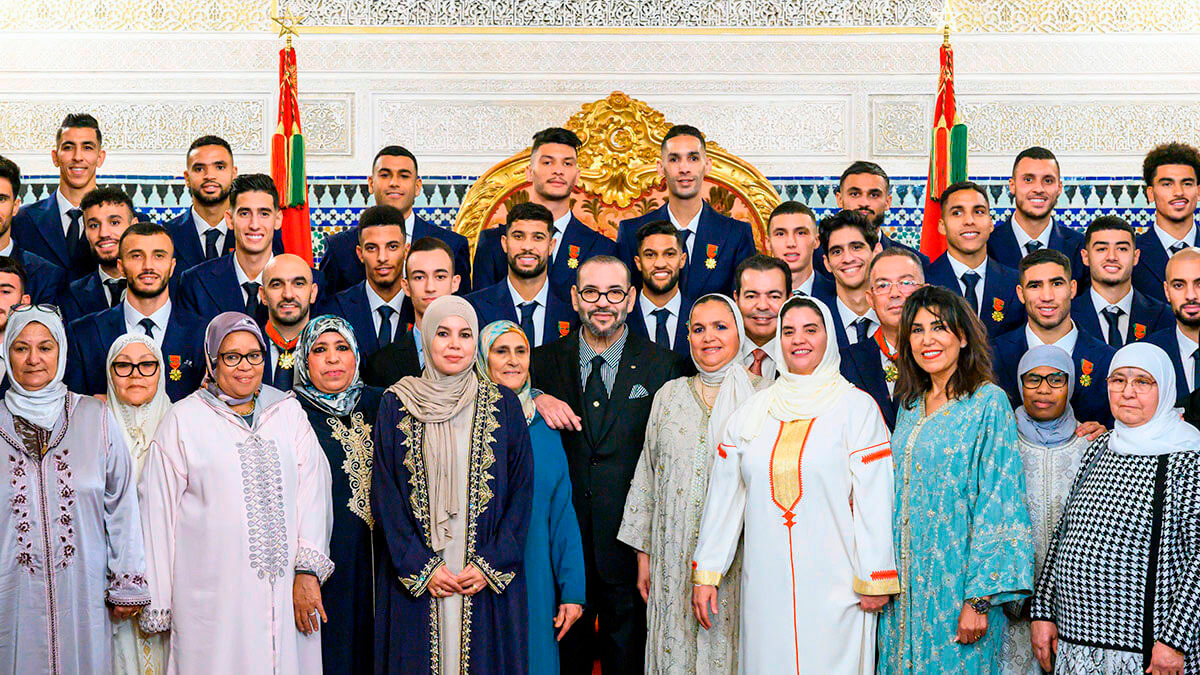
In recent years, the Kingdom has also experienced strong infrastructure development. With 2,000 kilometres of motorways, Morocco has the largest network on the continent after South Africa, as well as ports of international calibre, such as Tanger Med, the 20th largest container port in the world.
By 2030, a high-speed line is expected to connect Tangier to Agadir, the motorway network is expected to increase to 3,000 kilometres and the ports of Nador West Med, such as Dakhla Atlantique, will be operational.
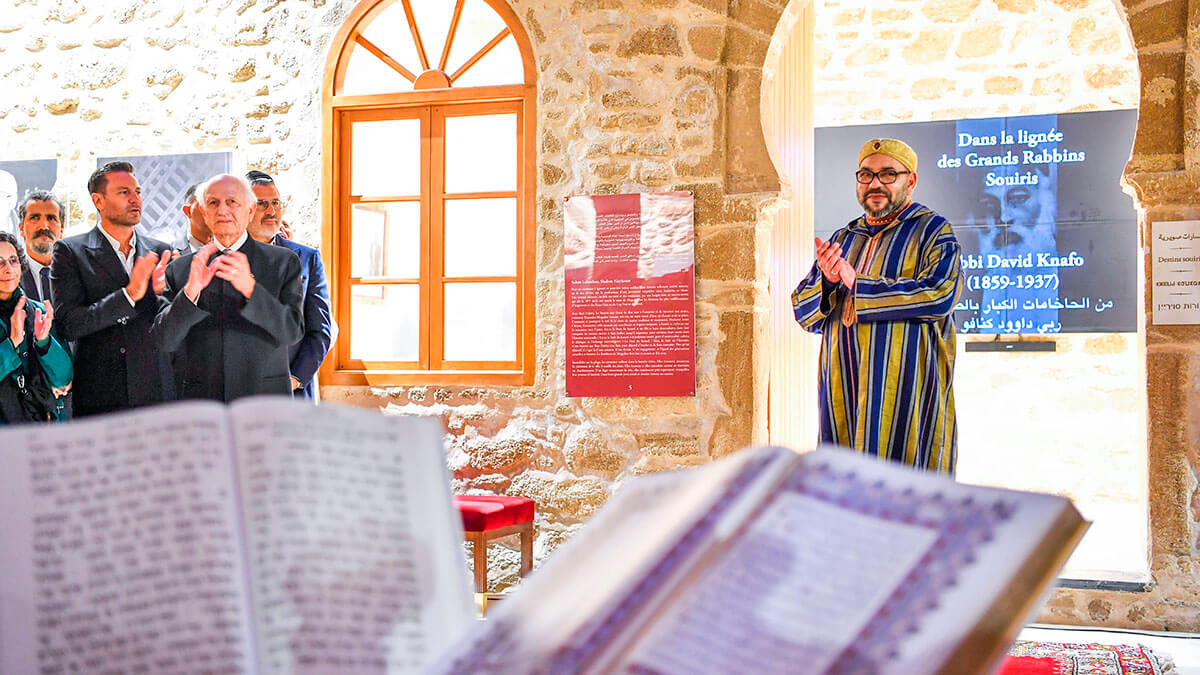
Foreign policy
On foreign policy, Mohammed VI's reign has been characterised by strong, forward-looking, diversified and strategic partnerships. Rabat has continued to develop its historical relations, such as those with France, Spain and the United States, while also focusing on new ones, such as China, with which it has made progress in trade and economic matters, creating the continent's first gigafactory for electric batteries, run by Gotion High-tech with an investment of 65 billion dirhams.
It is also worth mentioning partnerships with the United Arab Emirates and Israel, which promise close cooperation in a wide range of sectors and areas.
At the continental level, the so-called Atlantic Initiative stands out, an ambitious project that will benefit not only Morocco, but the entire Atlantic-Moroccan neighbourhood. This project, launched by the King of Morocco, which is beginning to reshape the geostrategic scenario in Africa, aims to provide the Sahel countries with a maritime outlet.
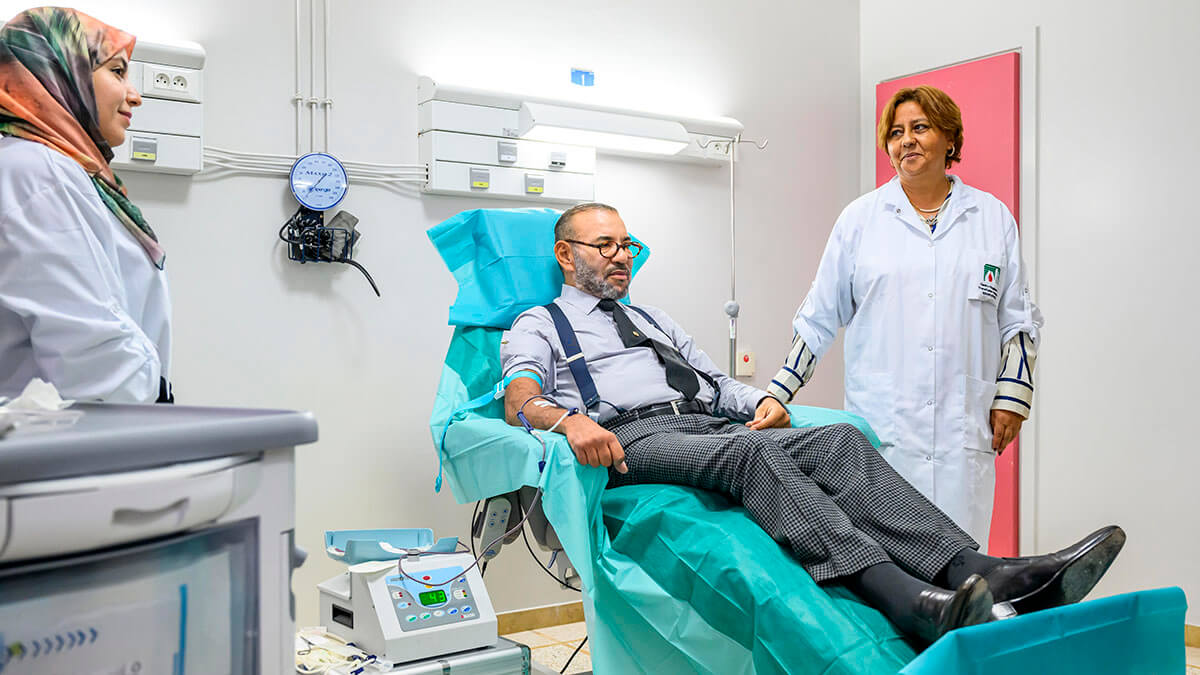
The Kingdom promotes renewable energies
Another sector where the Kingdom is making great strides is in the field of clean energy. It all began on 2 November 2009 in Ouarzazate, where the monarch officially inaugurated the construction of the ‘Noor’ solar complex, built on an area of more than 3,000 hectares. This was the first project in an ambitious renewable energy development programme.
With a production capacity of 582 megawatts (MW), this project, which combines thermodynamic solar power (CSP) and photovoltaics, required an investment of more than 20 billion dirhams, in the form of a public-private partnership (PPP).
Seven years later, on 4 February 2016, Noor I, the first power plant of this mega-project, with a production capacity of 160 MW, was built. An innovative project that is born in the middle of the desert and offers an impressive spectacle that attracts lenses and cameras from all over the world. This was followed by the successive commissioning in 2018 of Noor II (200 MW), Noor III (150 MW) and Noor IV (72 MW).
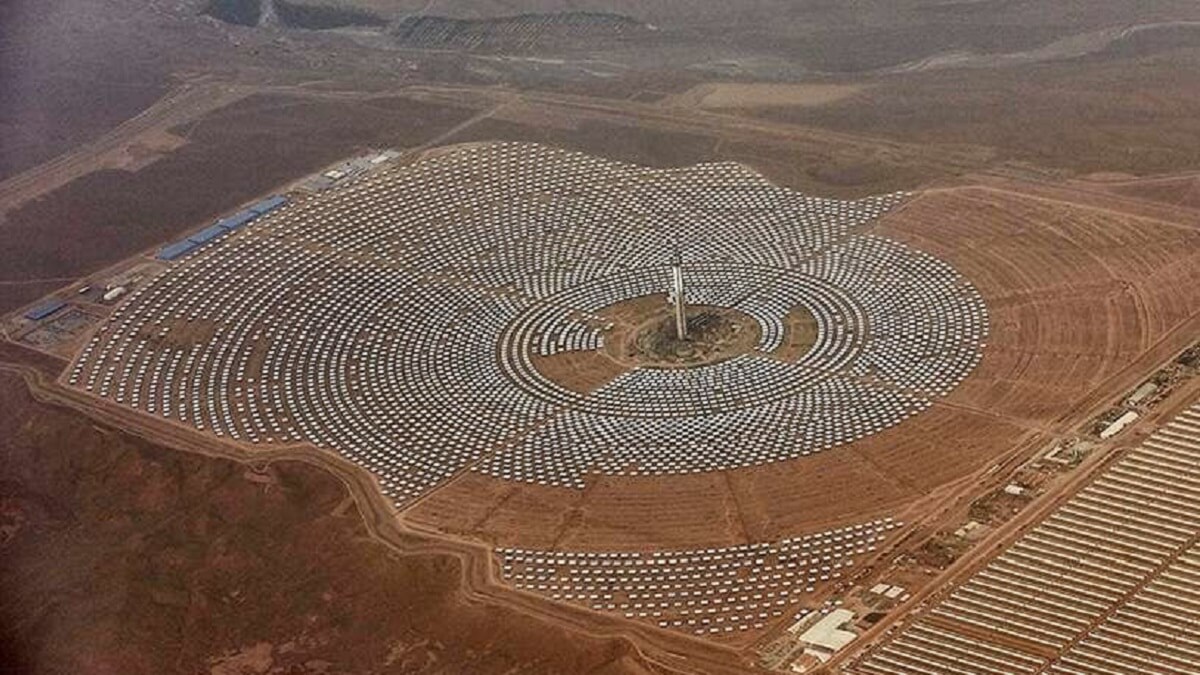
The year 2018 was also marked by the inauguration of the Noor Laâyoune I power plant, with an estimated electricity production capacity of 190 gigawatts (GW), resulting from a total investment of 950 million dirhams.
Today, the Noor Ouarzazate complex, one of the largest solar complexes in the world, supplies electricity to nearly two million Moroccans and prevents the release of nearly one million tonnes of greenhouse gases into the atmosphere.
In addition to solar energy, Morocco is also investing in wind energy. Several projects are emerging in the northern and southern regions. These include the Amogdoul wind farms (60 MW) in Essaouira, inaugurated in 2007, Tanger I (140 MW), Boujdour (300 MW), Taza (87 MW) and the Midelt power plant (180 MW), to be commissioned in 2020.
The Kingdom is also developing green hydrogen and gas projects in order to accelerate its energy transition. With regard to gas, an LNG terminal will be built in the future port of Nador West Med, as well as a gas pipeline connecting it to the Maghreb Europe Gas Pipeline (GME). Two other terminals are also planned for the Atlantic port of Jorf Lasfar 2 and the future port of Dakhla Atlantic, whose terminal will eventually be connected to the Nigeria-Morocco gas pipeline, a continental project also launched by King Mohammed VI.
The fight against drought, the main current challenge
However, Morocco also has to deal with one of the main challenges of our time: climate change and its effects. In particular, the Kingdom has to deal with drought, a problem that is threatening the national agricultural sector.
For this reason, since his accession to the throne, King Mohammed VI has made the protection of water resources a priority project. To this end, he has promoted the construction of new dams, the installation of desalination plants and wastewater treatment plants, as well as the improvement of water interconnections that demonstrate this unwavering commitment.

These measures not only serve to increase water supply, but also to promote sustainable and responsible management of this essential resource, thereby strengthening the country's resilience to current and future climate and demographic challenges.

